Nationalism and Christianity
Written by Mike Atnip
This essay was originally published by Plain News. Used by permission.
In recent weeks, the idea of nationalism has become a noted topic in secular media outlets. This resurgence is partly due to the war in Ukraine, an event that allows for a vivid expression of the idea. Ukrainian nationalists are fighting to preserve their particular nation from being overwhelmed by the pan-Slavic nationalism promoted by Russia. Meanwhile, the Russian government says that they are fighting to keep the Nazis—known for their extra-strong German nationalism—from sweeping through Ukraine to eventually make Ukrainians into Europeans.
I must admit that when I read of Russian leadership saying that the Nazis were trying to take over Ukraine, I shook my head. “Nazism is long dead; what a joke to claim that they are trying to overrun Ukraine!” However, upon studying what nationalism is and learning that some political groups within Ukraine have neo-Nazi ties, I realized that what the Russians were saying had some truth in it, even if the Russian claim of Ukrainian Nazification is, in my opinion, somewhat exaggerated.
Nationalism Defined
Nationalism is, according to Miriam-Webster Dictionary, “a sense of national consciousness exalting one nation above all others and placing primary emphasis on promotion of its culture and interests as opposed to those of other nations or supranational groups.”1 In other words, when a person begins to lift up his/her own nation as better than others, he/she is experiencing nationalism.
Before moving on, we need to define “nation.” I learned, just now, that a nation is not the same thing as a state or country. A nation is a group of people with the same culture, religion, language, and/or history. A state or a country is a political boundary that may include many nations, or part of a nation. For example, the Mongols are a nation that live mostly within the countries of Mongolia and China. If a spirit of nationalism were to swell up within the nation of the Mongols, that nationalism would not promote Mongolia nor China, but the people group called Mongols. Likewise, a nationalistic Mongol who lives in the U.S. would not lift up the U.S. but would lift up the Mongol people wherever they live.
Nationalism vs Patriotism
Nationalism and patriotism are related, but patriotism is promotion of a political entity, while nationalism is promotion of a people group. Thus, an ethnic Russian who lives in the country of Ukraine may be torn between love for the political entity known as Ukraine or a love for his nation, the Russian people. When a political entity is composed of mostly one nationality— such as Japan is—nationalism and patriotism can easily overlap, and the pride can become doubly strong.
Nationalism in the Current War in Ukraine
The current war in Ukraine is, in part, a war over nationalism. The Ukrainian nation (remember, not the country, but the people group) has experienced a strong surge of nationalism in the last century. Ukrainian nationalists want their nation to be allowed to form and govern a political entity (a country or state) of their own and live free from the control of any other political entity, nation, or state.
Meanwhile, the state of Russia feels that the nation of Ukrainians should join hands with their fellow Eastern Slavic nations, the Russian and Belarusian nations. In other words, the state of Russia wants to build an Eastern Slavic nation that would be comprised of three friendly states/countries. While this is happening, some Europeans are trying to woo the country of Ukraine into becoming part of a large pan-European nation. So it is that three spirits of nationalism are at war in the state/country of Ukraine:
- Ukrainian nationalism (Ukrainians who want their nation to have their own state)
- Eastern Slavic nationalism (Russians, Belarusians, and Ukrainians who want to unite to form an East Slavic nation of three countries)
- Pan-European nationalism (European nations and Ukrainians who want to join as part of a unified people composed of many European countries)
What would happen if all the nationalism, on all parts, would melt away? That would not necessarily end the war, since wars are also fought over resources. But removing all nationalism could help the current situation in Ukraine tremendously. It would also help many other current armed conflicts in the world.
Manageable Chunks
Most people realize that the world is better managed by men if it is divided into small chunks. No man is capable of managing the entire world, although some men throughout history have had aspirations to achieve just that. How the world is to be subdivided politically has been a source of constant contention from the beginning and will continue to be as long as unconverted men rule this world.
Obviously, one major natural dividing line is the continents. Rivers and mountain ridges can make other natural political divisions. A nation living in a specific area can be a motivation to draw boundary lines around where that people group predominates. But sometimes we have to revert to simple lines drawn on a map that do not follow geography: One rules on that side of the line, and the other rules on this side. These lines may divide nations, such as the political boundary between Mongolia and China that divides the Mongolian nation into two chunks.
However the earth may be divided into political units, it is impossible to keep all the nations within distinct political states. Nations intermarry, migrate to other lands, and expand in number. This means that the many nations in this world are mixed together, more or less. The Jews are a nation, for example, that have people scattered in many cities and countries in the world. Various African nations were scattered to many countries as slaves during recent centuries. Many Irish scattered to other countries because of the potato famine.
A country like the U.S. has many nations living within its political boundaries: Jews, Africans, Irish, Poles, Bolivians, along with the First Nations who were here long before the others arrived. As long as these various nationalities respect each other, this creates no lasting problems. But when one or the other of the people groups begins to experience nationalism, friction and fighting may occur.
The Problem Behind Nationalism
The problem behind nationalism is found in its very definition. Let’s look at that definition again: “a sense of national consciousness exalting one nation above all others and placing primary emphasis on promotion of its culture and interests as opposed to those of other nations or supranational groups.” Note the italicized word, exalting.
Nations have differences. Perhaps skin color, religion, language, cultural habits (like how they eat and work), political preferences, and how people relate one to another. So, say we have a white-skinned Christian who values hard work, loves democracy, embraces capitalism, speaks English, and values money more than deep friendships. Next door to him we have a dark-skinned Muslim who prefers a monarchy,2 wants state-controlled socialism, speaks Somali, and values time as a medium for building deep relationships.
What happens when these two neighbors each take up a spirit of nationalism that exalts others who are just like them, and looks down their nose at those who are different? Compare that scenario with one where the two nationalities still prefer their own culture and value systems but equally respect those who may differ as valuable humans.
We know that skin color is nothing of value, but most of the differences between our two neighbors described in the above scenario can be debated as to which is better. We can debate whether democracy3 is better than a monarchy. A good monarchy is much to be preferred than a rotten democracy. And a good democracy is much to be preferred over a rotten king. The same can be said for economics: capitalism has a long history of creating a dog-eat-dog environment where the economically strong subjugate the weak into being virtual slaves. A good state-run socialism is much preferred to poorly-managed capitalism. Meanwhile, a good capitalism is much preferred to a poorly-managed state-run socialism, which failures we have seen in the last centuries within some countries that espoused Marxism.4
One language is not better than another language. One culture values time as a means for building relationships, and the work gets done after the relationship is built … if there is any time left. The next culture puts more emphasis on making money, and relationships are built from the time left over after making a good living … if there is any time left. Obviously, there are balances and preferences on these aspects.
We Christians are assured within ourselves that Christianity has all the answers (and, yes, when it is genuine it does). The U.S. and Europe have historically considered themselves as bastions of Christianity. But others look at modern Europe and America and say, “If that is what Christianity does to a nation’s ethics and morals, save us from it!” An example of this is Vladmir Putin, President of Russia, who has spoken out against European morals. He has warned his fellow Russians—of whom about 2/3 are Orthodox Christians who tend to hold to conservative social values—to not let European homosexuality, transgenderism, women’s lib, and consumerism come into Russia. But Putin’s problem is the same as many evangelicals in the U.S.: he has turned to nationalism to fight against what he sees as growing immorality, rather than turning to the gospel that changes men from the inside out. He is promoting Eastern Slav nationalism (in which the culturally conservative Orthodox Church is predominate) as a weapon against European moral decadence.5
Nationalism is built around all the above concepts, conditions, and practices. One nation begins to look down on others who are different. Pride enters, and forbearance with differing cultures and mindsets gets thrown out the door. The next step is street brawls, and soon large wars can begin to rage. Each nation is convinced that the rest of the world must be exactly like my people.
Manifestations of Nationalism
The clearest manifestation of nationalism is pride in our way of living and thinking. But pride is an inner condition that cannot be seen without some outward fruit. Let’s look at some of the fruits or manifestations of nationalism.
Walls
Building unnecessary walls between us and them is a clear sign of pride. While this wall may be a physical wall — such as has been proposed between the U.S. and Mexico — it is more likely to be a non-physical wall. Some physical walls, like the Great Wall of China, Hadrian’s Wall in England, or a city wall in ancient times, were built as defense against military invasions. But there are also “walls” that are built to keep them away from us because we do not want to be bothered by their unworthiness. Segregation, used as “walls” to separate the “superior” from the “inferior”, means pride has crept in. Apartheid,6Jim Crow laws,7 and ghettos8 have been used to keep them away from us because we do not want our greatness to be smudged by their lowliness.
That said, we as Christians who believe in separation from the world do build a wall around our families and churches. However, this wall is different in that we try to wall out the evil while still relating with evil people as humans who are equally as valuable as we are, treating them with honor and respect while refusing to participate in their evil.
Forced Integration
Pride in nationalism may manifest itself in a forced acceptance of our way of life. “You must speak English in this country” is a form of nationalism. This is not limited to having to speak English in the U.S. In Ukraine, for example, previous governments tried to make Russian the predominant language, while the current government has subtly worked to push down Russian.9 In Bolivia, I was told angrily by one store owner, “You need to learn Spanish!” That was true, but I did not like the sense of superiority I felt from her when she said that to me.
Another form of nationalism is seen in the forced integration of a dress code that, for example, prohibits women from wearing a head covering. Several countries have introduced laws in recent years doing just that. This is nothing more and nothing less than nationalism: my people are better than your people, so you need to become like us even if it means a lower level of modesty.10
Genuine Christians do not force others to become like they are, even though they do try to persuade men to repentance and positive change. God does not accept forced worship, because robots cannot love. Only where worship is at the heart level can it be received by God as authentic. But a nationalistic spirit may try to force others to conform to the value system of another nation.
Self-sacrifice for Us, but Not Them
We can see nationalism manifest itself when people are encouraged to self-sacrifice for us, but somehow this is totally missing when it comes to self-sacrificing for them. Using the current war in Ukraine as an example, Ukrainian nationalists are calling for Ukrainians to give the ultimate, their physical lives, to save Ukraine. But where are the calls to live a sacrificial life for Russians and Europeans? And where are Russians being encouraged to self-sacrifice for Ukrainians and Europeans? And Europeans for Russians and Ukrainians? Biblical sacrificial living gives its best for anyone, not just for a certain nation.
Wars and Ethnic Cleansings
Sometimes nationalism becomes more than laws. In the Boxer Rebellion, Chinese nationalists put all foreigners to death, as well as any Chinese who had accepted the foreigners’ religion.11 In Rwanda, more than half a million Tutsi were killed in an ethnic cleansing that was tainted by nationalism. During the Ottoman Empire, more than 600,000 Armenians are thought to have been killed by a nationalistic spirit. The list could go on and on and on. No people group has been exempted from this, including Native Americans. For example, the Seneca nation subjugated the Lenni Lenape (Delaware) nation, calling them “women.” This was nothing more and nothing less than raw nationalism.
Buy Our Products, Not Theirs
Nationalism shows its face when it promotes the idea of helping our economy, but not theirs. Ever seen the words Buy American? That is nationalism. Why not buy a Guatemalan watermelon and help a struggling family farm down there instead of a corporate farm in California that gets (possibly) hundreds of thousands of dollars in government subsidies each year, and the owner drives luxury vehicles? Why not buy a shirt made in Sudan for a fair price and help a father support his family with his meager wage? Are Americans more deserving of business than Congolese?12 There may be good reasons for Christians to buy local, but the slogan Buy American is rooted in nationalism.
Propagandism
People who are zealous about a cause will naturally want to talk about it. What we think about, dream about, and invest in is what will come out of our mouths. Nationalists are often fervently involved in their cause. The problem is that much of the time the things that are said by nationalists are unbalanced. This is called propaganda. Sometimes it is called misinformation, which is a euphemism for lies.
In the current war between Russia and Ukraine, propaganda is clouding the skies of truth darker than a forest fire clouds the sun. One side says that those evil Russians bombed a maternity hospital. Photos were published of pregnant women with blood on their faces emerging from the scene. The other side says that those malicious neo-Nazis took over the hospital, forced everyone to leave, and were holed up there as a cover. Then, to make the Russians look bad, the neo-Nazis set off a couple of bombs outside and staged a photo shoot by a famous beauty blogger as an actor and a professional AP News photographer known for her anti-Russian sentiments.
Ayy! Where is the truth?
A deeper analysis of the bombed hospital story is that the Azov Battalion, a far-right political group with some neo-Nazi ties, has it base in Mariupol (the city where the hospital was bombed, and that the Russians have under siege). It is true that this group has been one of the main fighters of pro-Russian movements in Ukraine for the last decade and that they are known for having one of the slickest public relations departments in modern warfare. For example, the group uses drones to take videos of the moment when their anti-tank missiles destroy a Russian tank, which video they then post online to boost Ukrainian nationalistic attitudes.
A U.S.-based research group reported about two years ago that the Azov Battalion had already (illegally) brought in up to 17,000 foreign mercenaries to fight for their strong Ukrainian nationalism. A former leader of theirs said a decade ago that one goal of the group is to “lead the white races of the world in a final crusade against Semite-led Untermenschen.” This is similar to what the Nazi movement said, with Untermenschen meaning inferior men.
In Nazism, the Slavs were Untermenschen. Is it any wonder why Vladimir Putin would say that Russia has the intention of demilitarizing and de-Nazifying Ukraine? But is that all that Russia is trying to do in Ukraine?
When the nationalistic propaganda smoke clears away some day, the truth may come out about who bombed the maternity hospital and whether the Azov Battalion was using hospitals and kindergartens as bases and using the civilians of Mariupol as human shields. Meanwhile, we do best by realizing that both sides are probably telling some of the truth. We can recognize nationalistic propaganda by reports that come along that characterize the other side as evil and our side as good. In the current war in Ukraine, we see both sides using nationalistic propaganda to stir up the world’s emotions to support their cause.
The Three Percenters
Perhaps this is a good time to discuss the Three Percenters and how that relates to nationalism. The Three Percenters is a far-right political movement in the U.S. that promotes a strong libertarian13 model of government. They get their name from the common idea14 that only three percent of the American colonists actively fought against the British in the Revolutionary War. The Three Percenters see themselves as part of this very small segment of society that is willing to sacrificially do something about government overreach.
The point we want to consider is that a very small segment of society can have an overly large effect upon a nation, if that small percentage is vocal and active. The political arm of the Azov Battalion — whose actual militants in uniform may currently number under 1,000 men — in Ukraine has only gained about 2% of the popular vote in recent elections.15 Other similar groups also have had a small percent. Yet these vocal and active paramilitary groups have won more battles than the Ukrainian Army against the pro-Russian separatists (in years past). The Ukrainian government was so impressed by their military abilities that a few years ago they incorporated the paramilitary Azov Battalion into the official army of Ukraine.
As we consider nationalism, we need to keep in mind that in many cases small nationalistic groups may be causing the biggest part of the bickering and fighting among the nations. A few people can also build a very smoky fire of propaganda.
The Cure
The cure for nationalism is the same cure as for any other sin: repentance and renewal through Jesus Christ. A renewed mind will be cleansed from an attitude of superiority. There are no Untermenschen in the worldview of the kingdom of God. While as disciples of Jesus we do live more upright lives than unbelievers, we should do so humbly.16 Other religions deserve our respect, in the sense of recognizing that the people who hold to those religions are many times sincere people desiring to be upright people of integrity.
Obviously, any feelings of superiority that we may have that are based upon physical things — skin color, beauty, intelligence, or physical strength — need to be crucified immediately without any mercy. Ideas we hold about the best economic or political management need some serious discernment, or we can ignorantly end up promoting ideas that have had epic failures in history … such as thinking that our western civilizations are better because of democracy or capitalism.
There is nothing inherently evil in our tendency to associate with people who are like ourselves. For example, when I was in South America and did not know much Spanish yet, if I saw someone in town who looked like he/she would know English, I found myself drawn to that person so that I could have a conversation that did not strain my brain just to form a sentence. Farmers tend to enjoy the company of other farmers. Quilt makers like to be around other quilt makers. These relationships are not wrong; the wrong starts when we begin to avoid and devalue others who are not like we are.
The Cosmopolitan
Dictionary.com defines cosmopolitan as “free from local, provincial, or national ideas, prejudices, or attachments; at home all over the world.”17 Breaking down the etymology of cosmopolitan, we see a compound of “cosmos,” which is “world (in the sense of the planet Earth),” and “politan,” which is “citizen.” The cosmopolitan is a “world citizen.” A cosmopolitan considers everybody in the world as a co-citizen of planet Earth. Ethnicity, political preferences, religion, economic preferences, and culture are laid aside to embrace each and every human as a fellow human. This is not a spiritual embracing, but a recognition of shared humanness.
While Christians are citizens (politans) of a heavenly country, there is also a sense in which we are still citizens of planet Earth, along with all other people. Ideally, each human would be converted, and we could also embrace each human as a brother in Christ, but that will not happen. Meanwhile, we do need to embrace each human as a fellow cosmopolitan of great value. This attitude would melt nationalism into inexistence.
May I suggest a good exercise, one that I need myself? This next week, make it a goal to reach out to someone who is very different than you are. Perhaps a foreigner. Perhaps someone who values a different economic model (capitalist vs. socialist) than you. Perhaps a different religion. See them as humans, just like you are. If you are truly convinced that you hold better ideas and values, try listening to why they think their ideas and values may be better. You may find that your own views can be bettered by theirs! In all of that, of course, we do not want to abandon the ideas and values of God. No, not an iota.
For a second exercise, listen to the talk of those around you. See if you can pick up any spirit of nationalism, even in its most subtle forms, as the person expresses himself. If the topic is about the war in Ukraine, see if you can pick up any Ukrainian, Russian, or pan-European nationalism. Most importantly, listen to your own talk, and look at your own walk, and see if you can catch a whiff of a terrible odor of pride in our way of doing things.
If you find nationalism in yourself, squash it. Or, using biblical terminology, crucify it!
__________________________________
Originally published by: Plain News |
3-25-2022 | For subscription information Visit: www.plainnews.org
Email: ne**@*******ws.org
Fax: 814-470-8885
__________________________________
ENDNOTES
1https://www.merriam-webster.com/dictionary/nationalism Return to context⬏
2 A monarchy is rule by one person, a singular king. Return to context⬏
3Democracy is a word of Greek origin that means “rule by the people.” Return to context⬏
4 Marxism is a political-economical system based upon the ideas of Karl Marx. Some people use the generic term of Communism as a name for Marxism, but Marxism is only one among many of socialistic expressions. Socialism is an economic system where everyone equally shares the available resources. Return to context⬏
5It needs to be noted that Putin’s “conservative moral values” may or may not be genuinely held. He may just be a good politician who knows he can win the respect of the Orthodox Churches by supporting conservative moral values; I cannot say one way or the other. Likewise, initiating a war that will kill and wound thousands of innocent people is not Jesus’ way to overcome evil. Return to context⬏
6 Apartheid is the name given to enforced racial segregation in South Africa. Return to context⬏
7 Jim Crow laws were laws, mostly in the southern U.S., that mandated that African-Americans be kept physically separate from whites. Return to context⬏
8 While we think of a ghetto as a poor area of town, at times in history these areas were where certain people, such as Jews, were forced to live by law. Return to context⬏
9 A sizable minority in eastern Ukraine still speak Russian and are culturally and ethnically Russians because of moving into Ukraine when it was still part of the U.S.S.R. Return to context⬏
10While the implementation of these laws is claimed to be for public safety (“we do not want terrorists hiding under a burqa”), those pushing for the laws are usually the same ones who are strong nationalists. Return to context⬏
11 Which in this case was Christianity, but it could have been any other religion since the nationalism that inspired the killings was against anything perceived as un-Chinese. Return to context⬏
12 The issue of poor nations selling their products to rich nations, and how that can actually raise local prices, is another topic. For the moment, we are looking at only the aspect of not allowing a nationalistic attitude into our lives. Return to context⬏
13 Libertarianism is a model of government that limits government to the very minimum, as needed. It does not promote doing away with government entirely (which is anarchy), but promotes a very small government. Return to context⬏
14 An idea which some historians say is not accurate. Return to context⬏
15 In previous elections they have gained up to 10% of the vote in Ukraine. Return to context⬏
16 For example, we may hold and practice the concept of nonresistance. But we do not want to be proud about doing so. Return to context⬏
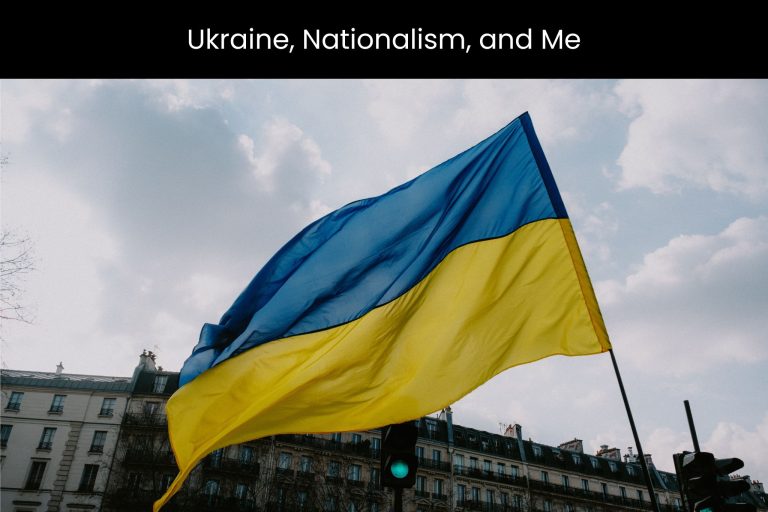

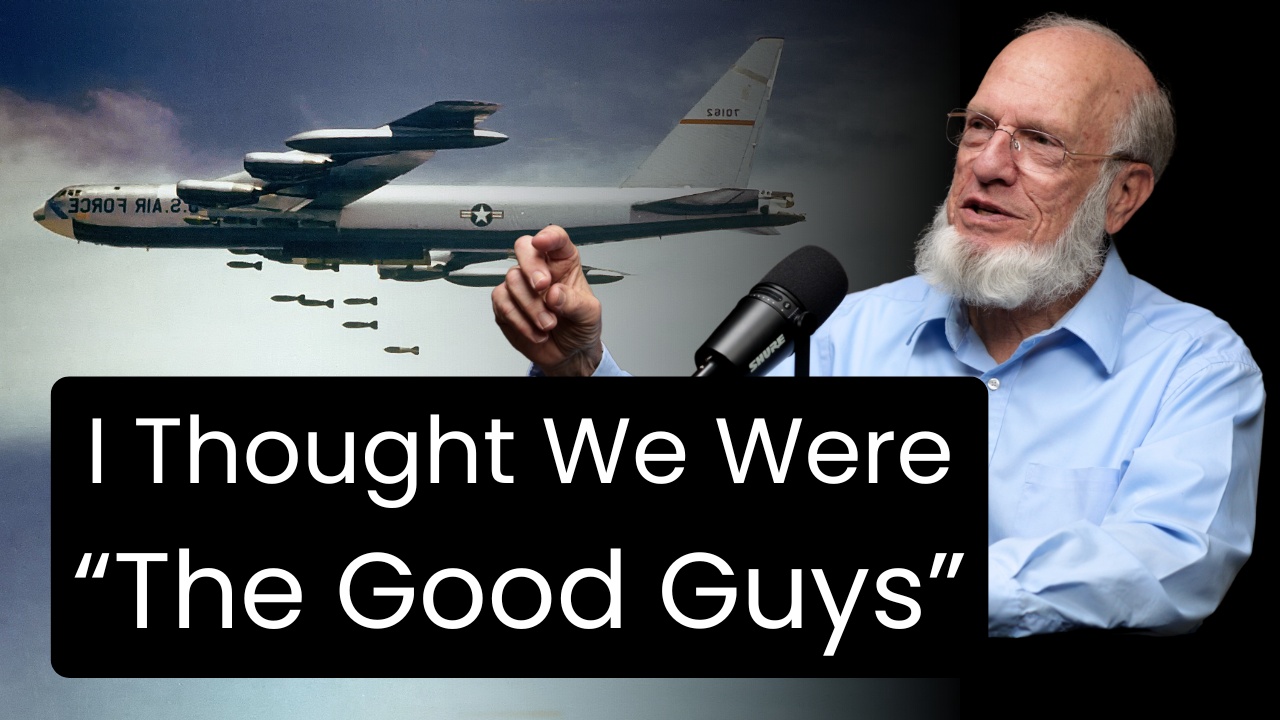

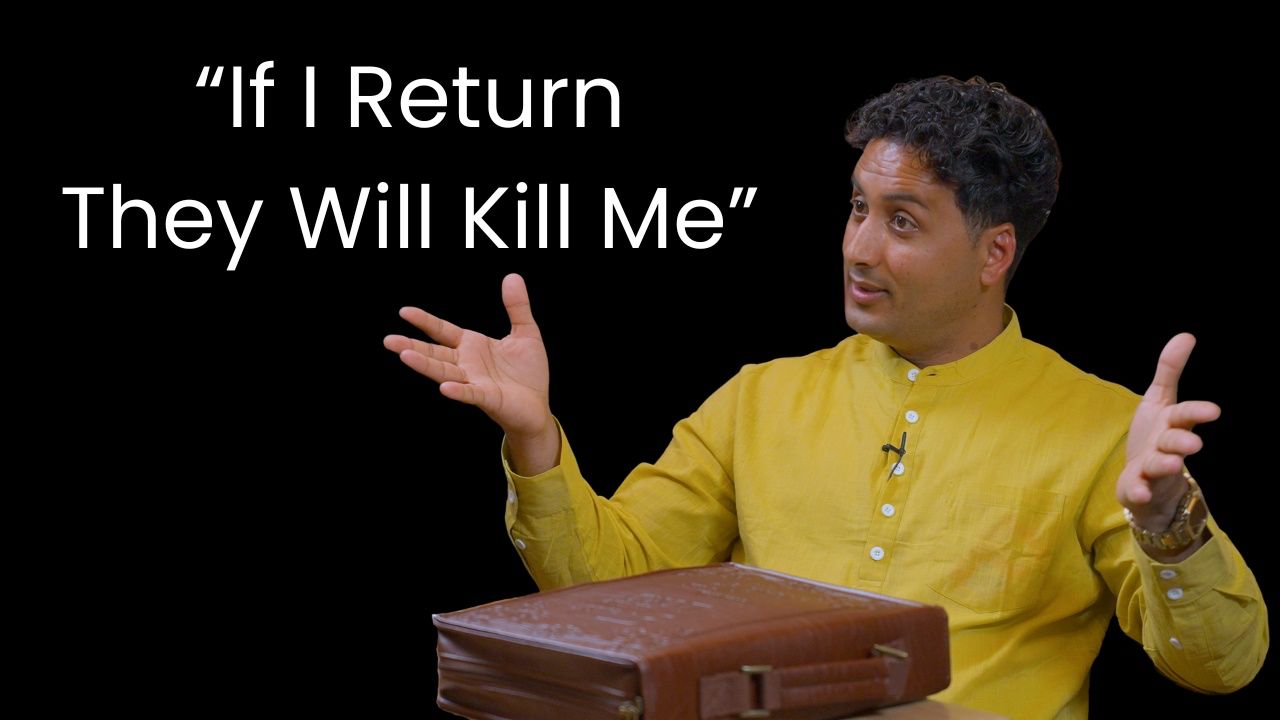
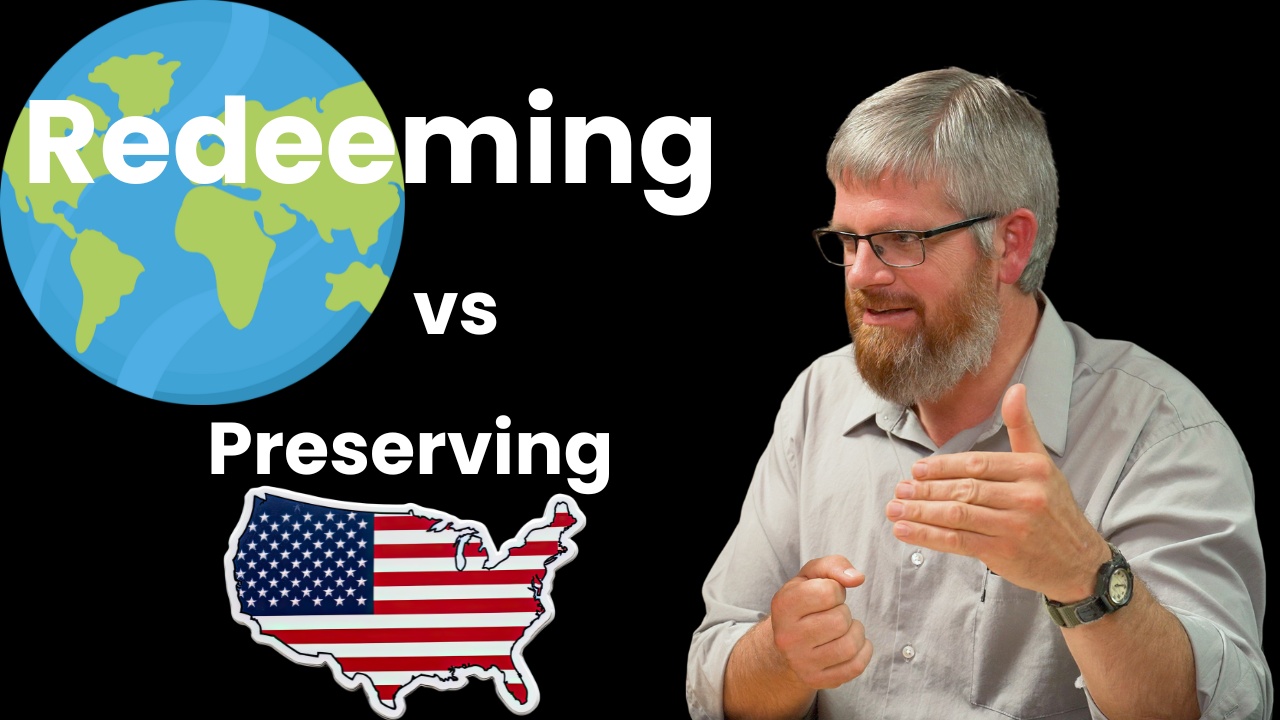
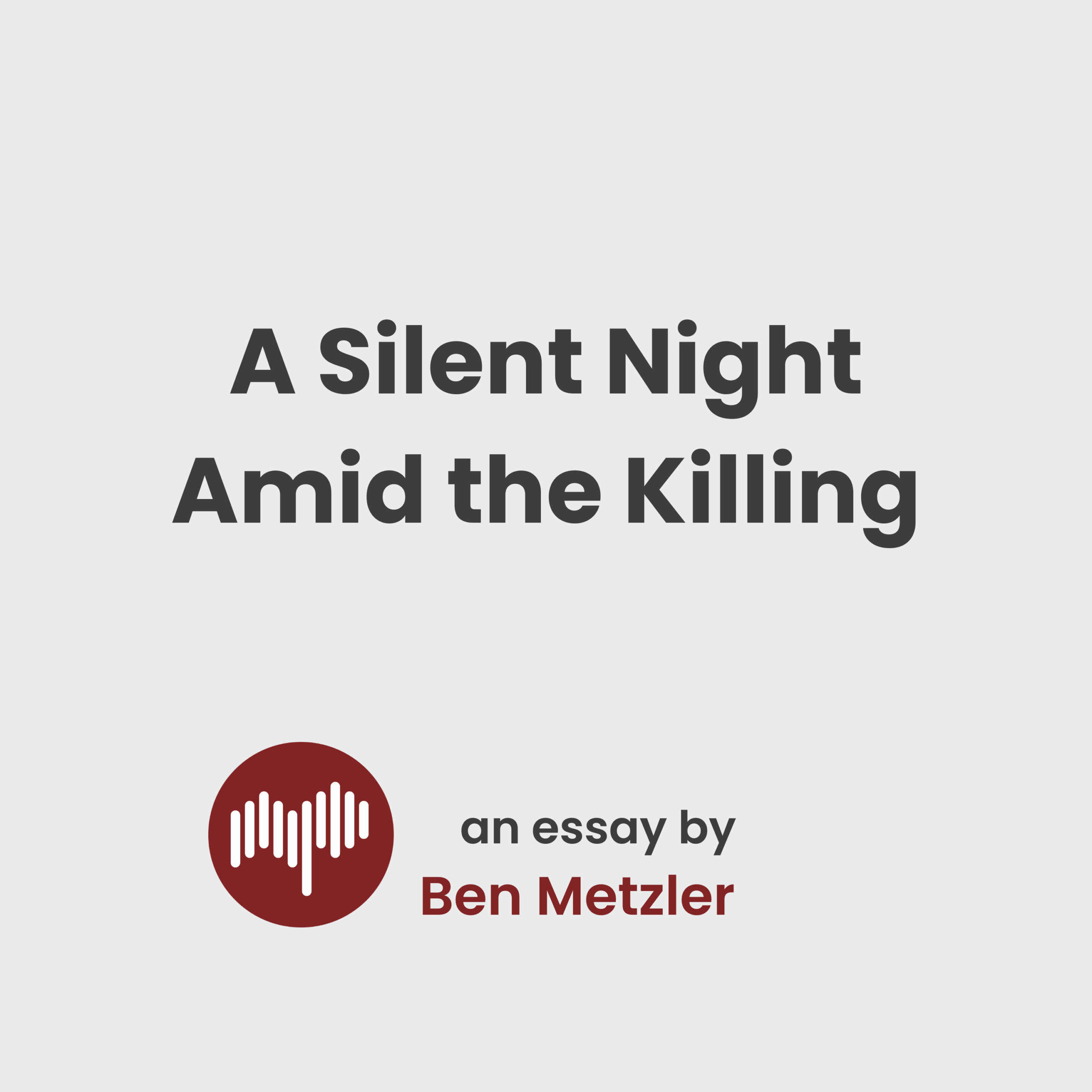
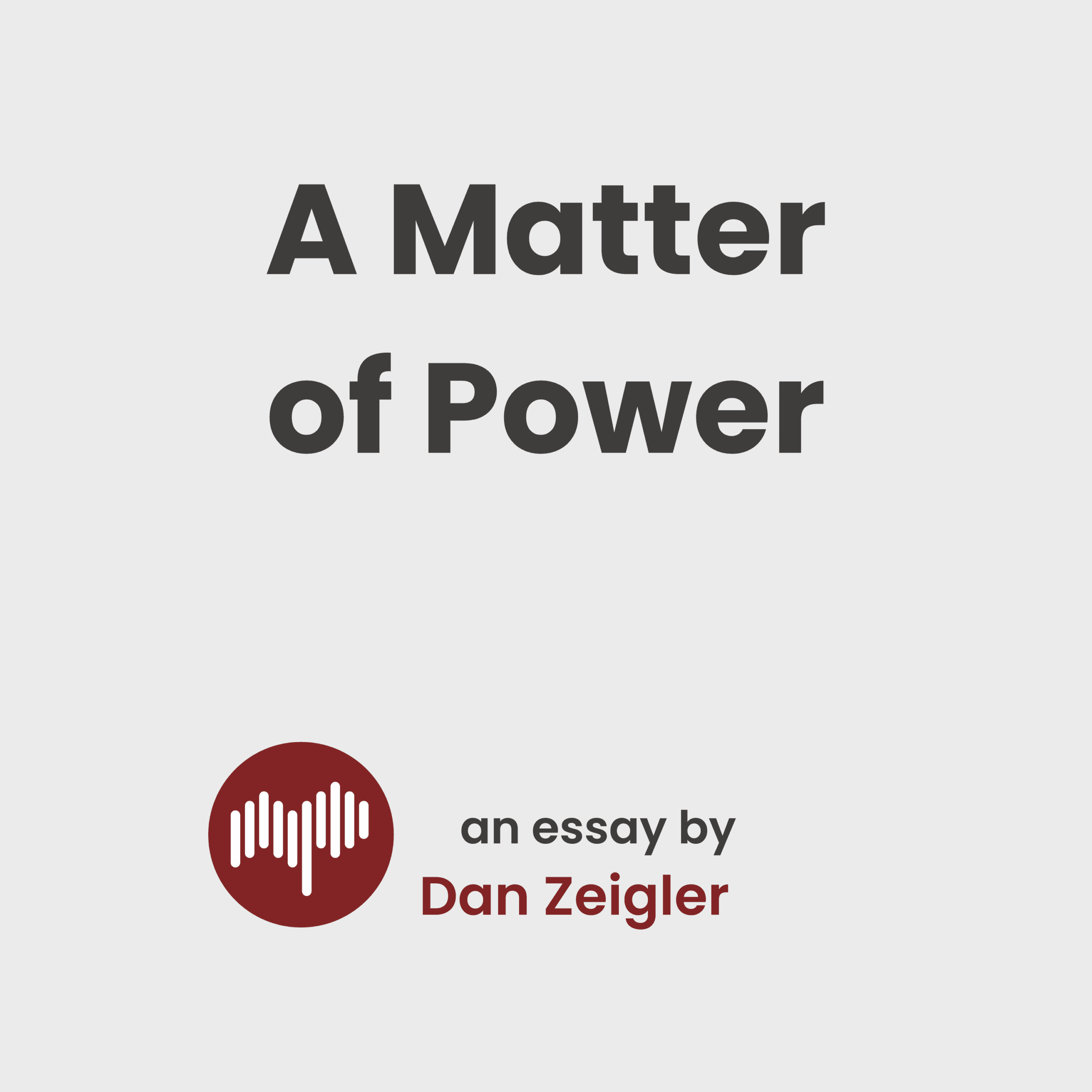
Leave a Reply